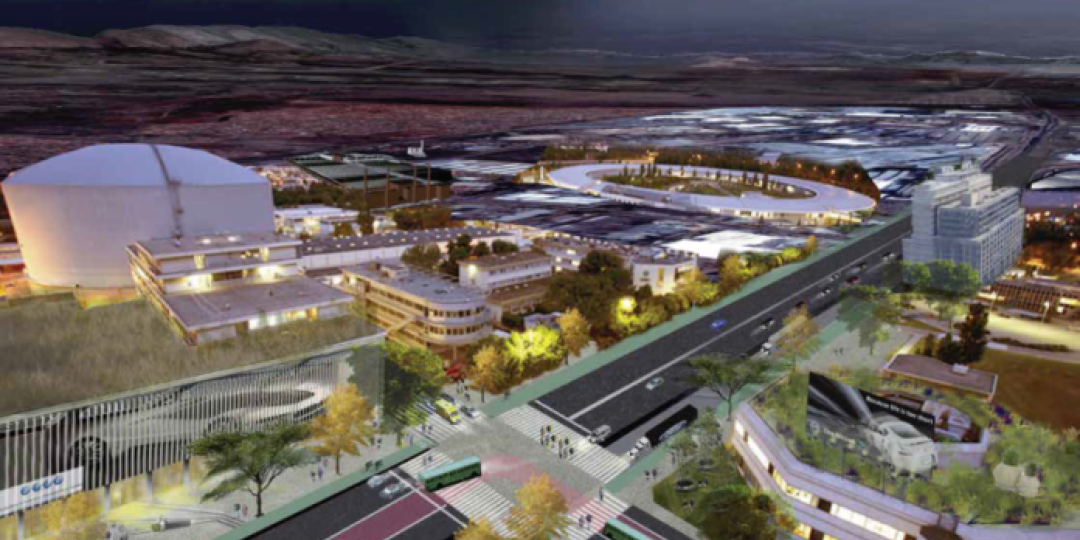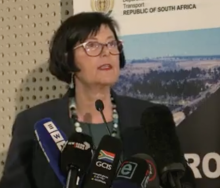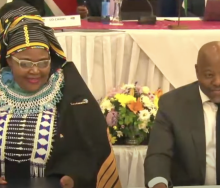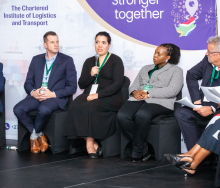The Tshwane Automotive Special Economic Zone (Tasez) has officially entered into full operation, with all 10 auto component manufacturing companies located in the zone starting full production.
This follows Ford Motor Company of South Africa (FMSA) commencing with the production of the next-generation Ford Ranger on November 14.
Tasez was established as a special-purpose vehicle production zone. Its first phase of development was specifically aimed at creating additional infrastructure and capacity within the FMCSA supply chain to support South Africa to be one of only three hubs in the world to produce the next-generation Ford Ranger.
Tasez is a company that was established in May 2020 through a first-of-its-kind intergovernmental agreement between the Department of Trade, Industry and Competition (the dtic), Gauteng Department of Economic Development, and the City of Tshwane Metropolitan Municipality.
The Deputy Minister of Trade, Industry and Competition, Fikile Majola, said Tasez's mandate was aligned and effectively born out of the national strategies of the South African government, particularly the new Special Economic Zones (SEZs) approach that was approved by Cabinet in 2019.
“The approach places an emphasis on the involvement of all three spheres of government (national, provincial and local) and the private sector in the planning, development and management of Special Economic Zones. The new approach presents a multi-pronged approach to industrial development, with prominence on building partnerships with the private sector to unleash job-creating investment,” said Majola.
FMCSA made a capital investment of US$1.05 billion (R15.8bn) for the production of the new generation Ford Ranger.
“In January 2021, notwithstanding the economic and investment adversity caused by Covid-19, Tasez commenced the construction of the suppliers’ facilities. As early as November 2021, three of these suppliers were already in operation in the zone, producing parts for the previous Ranger.
“During the past 10 months, all investors have taken occupancy and have been preparing themselves for the start of the production of the new Ford Ranger,” said Majola.
The investment made by the 10 suppliers within the zone is currently sitting at R3.62bn against an overall projected investment of R4.2bn .
The total number of permanent jobs created by these suppliers is currently sitting at 1 259 jobs (76% youth and 32% women) against a projected target of 2 080, to be realised during the production ramp-up.
A total of 4 848 construction jobs (12% women and 53% youth) have been achieved to date. Tasez also drives inclusive economic growth and meaningful economic opportunities through empowering small, medium and micro enterprises (SMMEs) in townships.
During the construction of Phase 1, the total procurement spent on SMMEs through construction packages is currently sitting at 38% against a target of 45%, with 244 SMME packages awarded to the value of R1.1bn .
Within the FMCSA’s own facilities, 1 200 additional jobs have been created, bringing its total workforce to 5 500. An estimated 10 000 new jobs have been created across Ford’s local supplier network.
“The speed at which the Tshwane Automotive SEZ was developed is a testimony to what South Africa can achieve with strong partnership between the private and public sector, with a big role played by the communities of Mamelodi, Nellmapius and Eersterust. They ensured that the project continues unhindered in view of the timeframes,” Majola said.
The Tasez programme will remain guided by its vision to become a leading catalyst for inclusive industrial development and economic growth, as it is already set to commence with the second phase of the development. This will focus on mixed use of facilities, consisting of an industrial node, retail and an Automotive Centre of Excellence node.
“The acquired expertise from the successful implementation of Tasez will be instrumental in unlocking and enhancing the potential of the other SEZs throughout the country,” Majola said.













